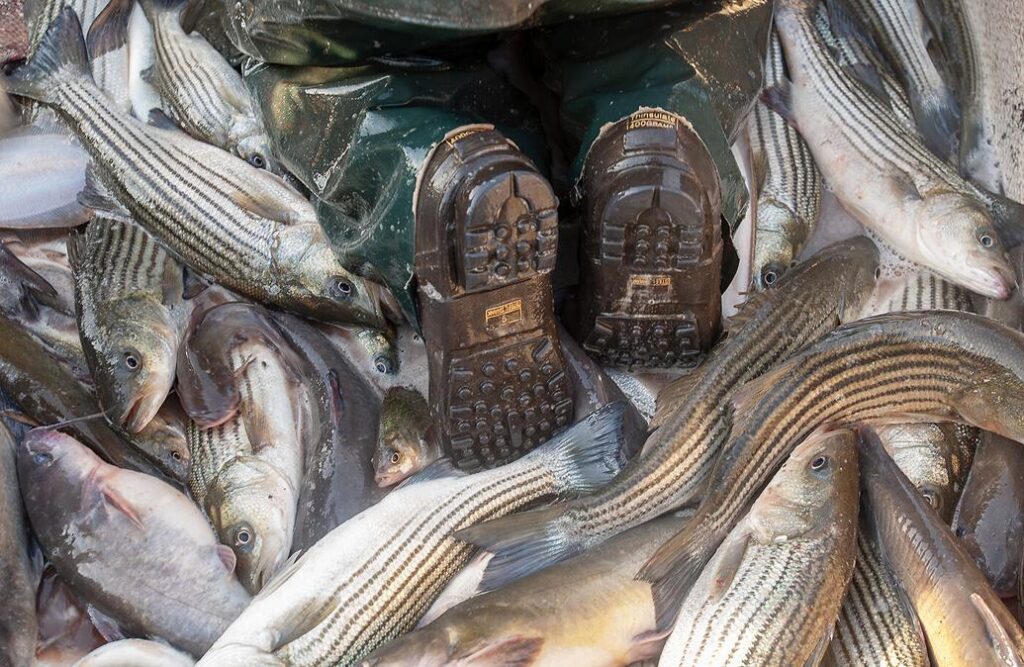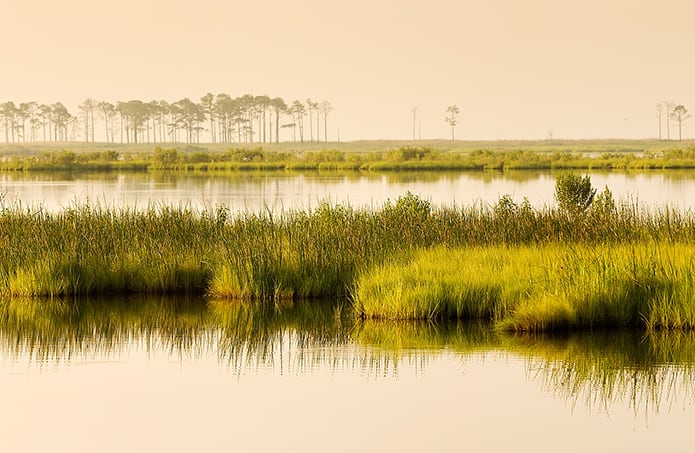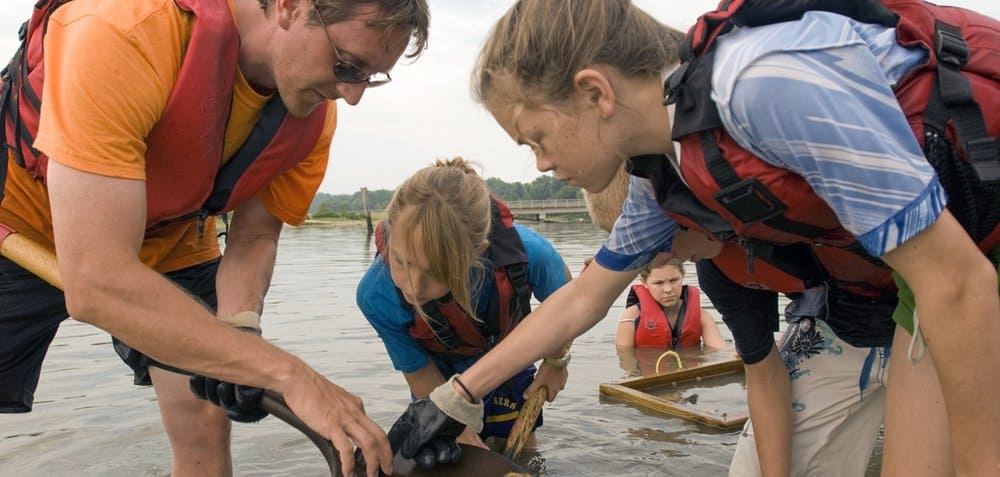Prompted by slumping striped bass reproduction in Maryland waters, the state Department of Natural Resources is moving to limit fishing for the popular Bay rockfish during its spawning run next spring.
On Nov. 29, DNR proposed emergency regulations that would eliminate the state’s two-week trophy fishing season in early May. That’s when anglers have in past years been allowed to keep one fish a day measuring 35 inches or more.
The rule would likewise bar keeping any striped bass hooked on the Susquehanna Flats at the head of the Bay in the latter half of May. It would also extend from four to six weeks a springtime prohibition on targeting striped bass—even for catch and release—from April 1 through May 15.
DNR officials said they’re seeking to improve striped bass reproduction by easing the fishing pressure.
“We’re asking anglers to take a break, leave the fish alone, and hopefully we’ll get a good result,” said Mike Luisi, associate DNR director for tidal and coastal management and science.
Known regionally as rockfish, striped bass are one of the most sought-after sport and commercial fish in the Chesapeake Bay and along the mid-Atlantic coast. They spend much of their adult lives roaming the coastal Atlantic Ocean but migrate every spring into the Bay and its tributaries to spawn in freshwater. That typically occurs in April and May.
The Bay is the primary spawning and nursery ground for 70-90 percent of the entire coastwide population of striped bass. But Maryland’s annual seine survey for juvenile fish in the Bay and tidal tributaries this year found the second fewest number of recently hatched striped bass since the survey began in 1957. It is the fifth straight year of below-normal juvenile counts in the state.
Maryland’s move comes as the Atlantic States Marine Fisheries Commission, which regulates near-shore fishing along the entire East Coast, weighs a menu of other curbs on recreational and commercial fishing for striped bass that could be imposed next year. Hearings on those options are being held in Annapolis on Dec. 6 and in Virginia on Dec. 7. [For location and times, see here.]
DNR Secretary Josh Kurtz said Maryland’s emergency regulations are intended to complement whatever the Atlantic States commission decides to do when it meets in January.
“Maryland waters serve as the spawning grounds for many of the striped bass that migrate up and down the East Coast, and we take our leadership role in managing the overall population
seriously,” Kurtz said. “That’s why we’re putting forth new regulations to protect spawning striped bass.”
Recent research suggests striped bass spawning may be suffering from environmental factors, including warmer than usual winters and low river flows because of reduced precipitation. But DNR officials say they’re proposing curbs on fishing-related mortality in hopes they will improve the odds for a rebound in spawning.
“We thought for this coming year that we should do everything we could in our power to protect the spawning [females],” Luisi said. “Hopefully, Mother Nature will play along, and we can get environmental conditions we need and have a good [juvenile] year class.”
Luisi said DNR proposed the fishing changes as emergency regulations because there wasn’t time to enact them for the 2024 spring fishing season through the normal regulatory process. As emergency rules, they are subject to review by a joint committee of the Maryland General Assembly, which may hold a public hearing on them if any of its members requests one. The rules would expire after 180 days, requiring DNR to reenact them after taking public comments if it seeks to continue them.
The striped bass trophy season has previously taken place during the first two weeks of May. This is typically when large female striped bass swim up the Bay to spawn in the same rivers where they hatched. The emergency regulation aims to spare these fish from recreational harvest before and after they spawn.
The closure of the Susquehanna Flats in the latter two weeks of May is likewise intended to protect striped bass as they begin to migrate back down the Bay after spawning.
Reaction to DNR’s announcement was mixed.
Allison Colden, Maryland executive director of the Chesapeake Bay Foundation, commended DNR for acting.
“While this action is an important step,” she said, “further changes to protect striped bass, including those currently under consideration at [the Atlantic States commission], will likely be necessary to help rebuild the population.”
Maryland has been under pressure from conservationists to do away with its spring trophy season. The state shortened it from one month to two weeks in 2020 after the Atlantic States commission ordered coastwide reductions in the recreational catch. But pressure on Maryland continued because Virginia ended its spring trophy season that year.
David Sikorski, executive director of the Coastal Conservation Association Maryland, a conservation-minded anglers’ group, welcomed DNR’s decision to end the trophy season. He lamented the agency’s extension of the ban on targeting striped bass for catch and release, however, arguing it would hurt fishing bait and tackle businesses and the rest of the recreational fishing industry without doing that much to conserve the fish.
Brian Hardman, president of the Maryland Charter Boat Association, said closing the spring trophy season also hurts charter captains, though the impact has lessened because they’re already suffering from fewer bookings because of the economy. But he suggested DNR should also have prohibited catch-and-release fishing in March. That’s when—at least this year—striped bass and other fish made spawning runs up the Bay because of abnormally warm weather.
“If DNR wants to protect the female fish, then protect the female fish,” Hardman said. “That’s how you do it.”
Luisi acknowledged that striped bass began spawning earlier than usual this year. He said DNR might consider barring catch-and-release fishing for them in March when the agency revisits the regulations next year.
This story first appeared on bayjournal.com on Nov. 29, 2023.




